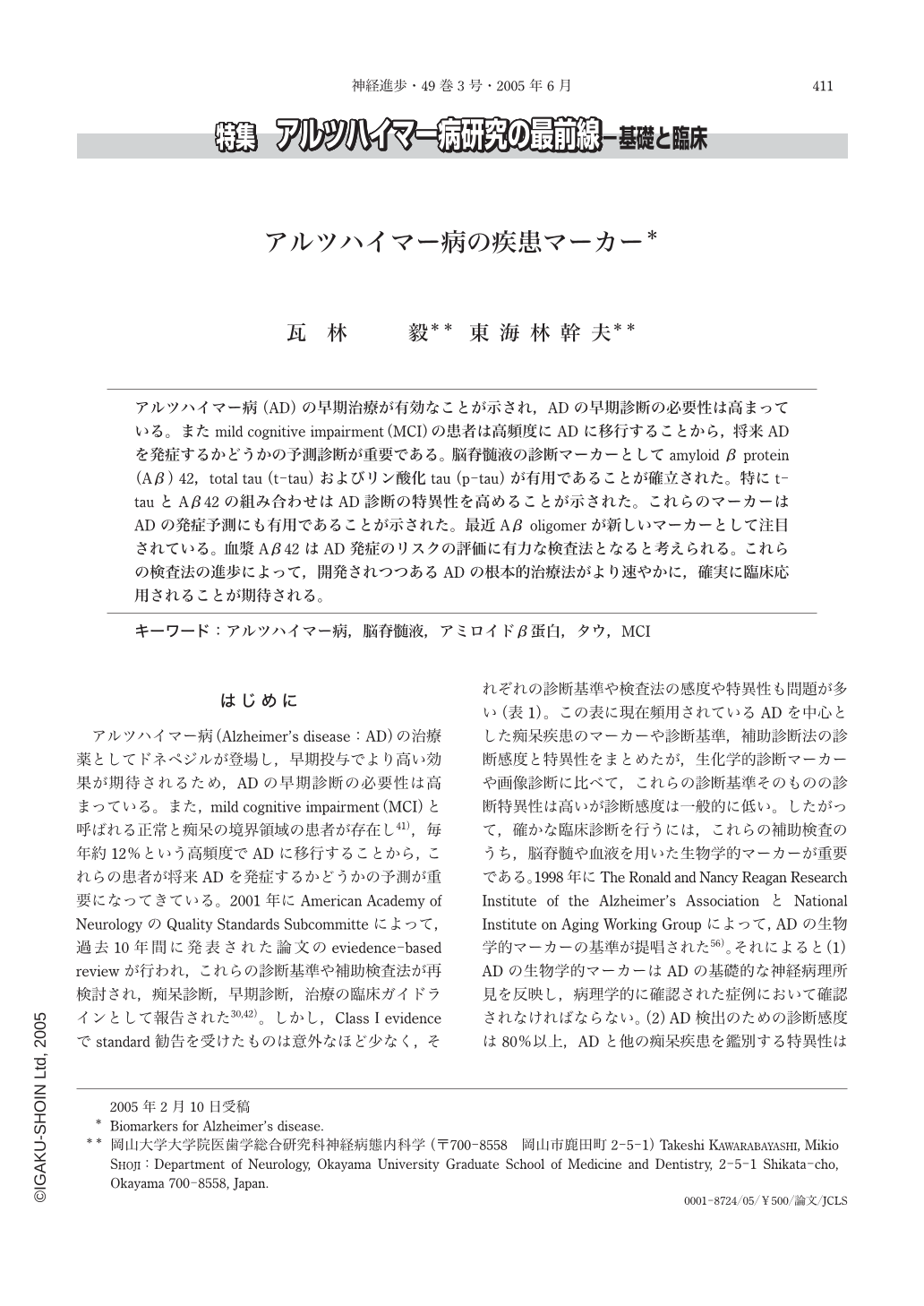Japanese
English
- 有料閲覧
- Abstract 文献概要
- 1ページ目 Look Inside
アルツハイマー病(AD)の早期治療が有効なことが示され,ADの早期診断の必要性は高まっている。またmild cognitive impairment(MCI)の患者は高頻度にADに移行することから,将来ADを発症するかどうかの予測診断が重要である。脳脊髄液の診断マーカーとしてamyloid β protein(Aβ)42,total tau(t-tau)およびリン酸化tau(p-tau)が有用であることが確立された。特にt-tauとAβ42の組み合わせはAD診断の特異性を高めることが示された。これらのマーカーはADの発症予測にも有用であることが示された。最近Aβ oligomerが新しいマーカーとして注目されている。血漿Aβ42はAD発症のリスクの評価に有力な検査法となると考えられる。これらの検査法の進歩によって,開発されつつあるADの根本的治療法がより速やかに,確実に臨床応用されることが期待される。
Recent progress of the treatment for Alzheimer's disease(AD)demands the accuracy in the early diagnosis of AD. To determine if a patient with mild cognitive impairment(MCI)has incipient AD, is also becoming the noteworthy issue. Three cerebrospinal fluid(CSF)biomarkers;β-amyloid42(Aβ42), total tau(t-tau)and phosphorylated tau(p-tau)have been evaluated in numerous scientific papers. Measurement of Aβ42 and t-tau in the CSF is useful for the diagnosis of AD, especially when they are combined. Studies showed that measurement of p-tau improves early and differential diagnosis of AD. They are also useful markers to identify incipient AD in MCI cases. Aβ oligomer in CSF shows interesting results though the data is preliminary. Plasma Aβ seems to be a useful marker to evaluate the risk of AD though it has low specifity for diagnosis of AD. Early diagnosis of AD using these biomarkers may contribute to develop drugs aimed at targeting the degenerating processes of AD.

Copyright © 2005, Igaku-Shoin Ltd. All rights reserved.


